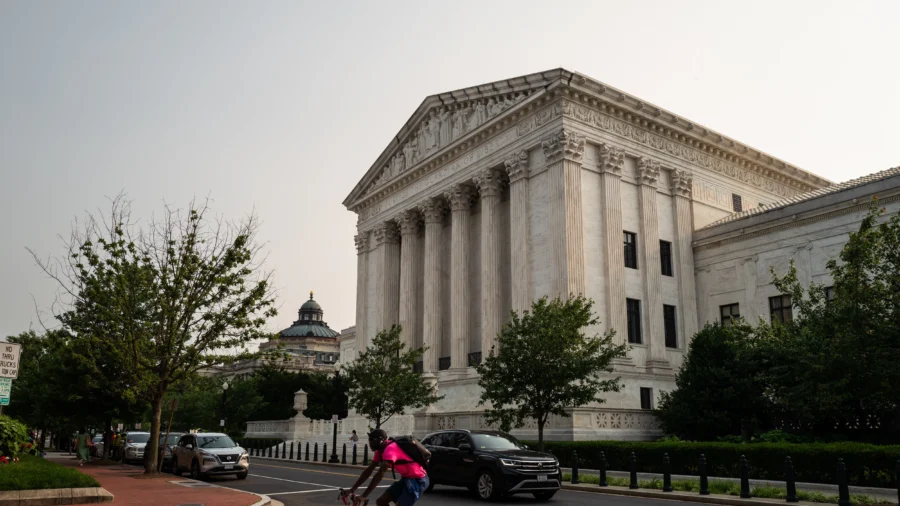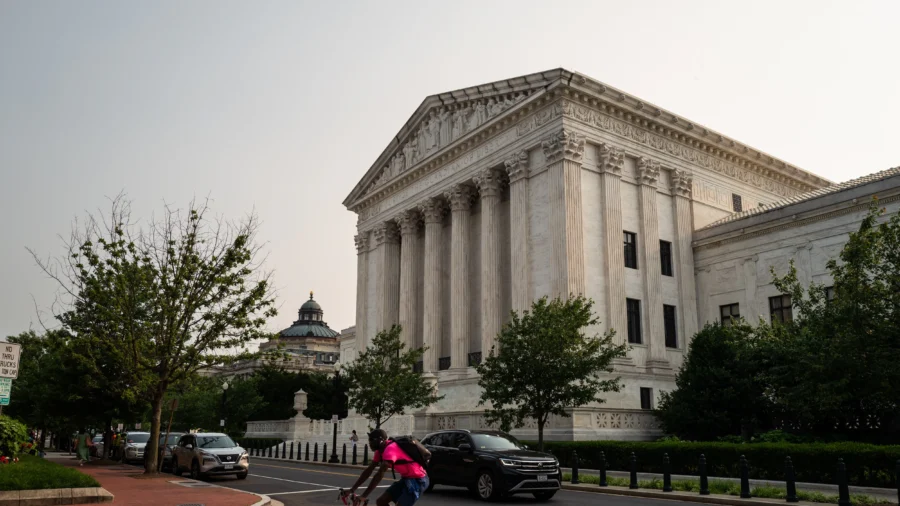
Justice Amy Coney Barrett delivered the opinion of the court, writing, “These injunctions—known as ‘universal injunctions’—likely exceed the equitable authority that Congress has granted to federal courts.”
“This morning, the Supreme Court has delivered a monumental victory for the Constitution, separation of powers, and the rule of law,” Trump said.
The decision comes as judicial injunctions—which can sometimes take the form of prohibitions on a specific policy or federal goal—have threatened Trump’s ability to execute a series of policies pursued by his administration.
Here are six policies that could be affected by the ruling.
Funding for Sanctuary Cities
In February, a federal judge in San Francisco blocked implementation of an executive order targeting federal funding for “sanctuary cities,” describing cities that flout federal immigration law and refuse to assist federal agents in enforcing immigration law.
The judge at the time said this push violated the Tenth Amendment by imposing “coercive conditions intended to commandeer local officials into enforcing federal immigration practices and law.”
Voter ID
Trump could also now be able to push ahead with a stalled effort to overhaul U.S. election law through an executive order that would require states to impose stronger voter ID and proof of citizenship requirements.
“The United States has not adequately enforced Federal election requirements that, for example, prohibit States from counting ballots received after Election Day or prohibit non-citizens from registering to vote,” the order said.
It was halted by federal judges in Massachusetts and Washington after 19 states sued.
$3 Trillion Funding Freeze
Another policy that could be affected was an effort by Trump to freeze upwards of $3 trillion in funding and grants to states while they were reviewed for alignment with the administration’s goals and policies.
Twenty-three states sued to block the policy. They were granted favorable rulings, which the government has appealed, by federal judges in Washington and Rhode Island.
The attempted funding freeze comes as part of Trump’s larger effort to reduce federal spending and ensure that such spending aligns with the goals of his administration.
Public School DEI Programs
Another policy that could now be permitted to move ahead centers around diversity, equity, and inclusion (DEI) programs in public schools.
The administration, through the Department of Education, has ordered public schools to end such programs or risk losing their share of around $75 billion in federal public school funding.
Judges in three jurisdictions—New Hampshire, Maryland, and Washington—blocked the effort.
Taxpayer Transgender Funding
Another policy that could be back in play is an effort by Trump to block federal funding for medical providers who perform transgender-related procedures on individuals below the age of 19.
A Baltimore-based federal judge placed an injunction on enforcing the policy in March.
USAID Funding
Finally, the Supreme Court decision could permit Trump to move ahead with his administration’s efforts to effectively end the U.S. Agency for International Development (USAID) and wrap the agency into the State Department.
USAID has been accused of using U.S. taxpayer funding to advance progressive causes domestically and internationally. Trump froze nearly $2 billion for the government body early in his term.
A Washington judge ordered Trump to resume the payments.
From The Epoch Times


